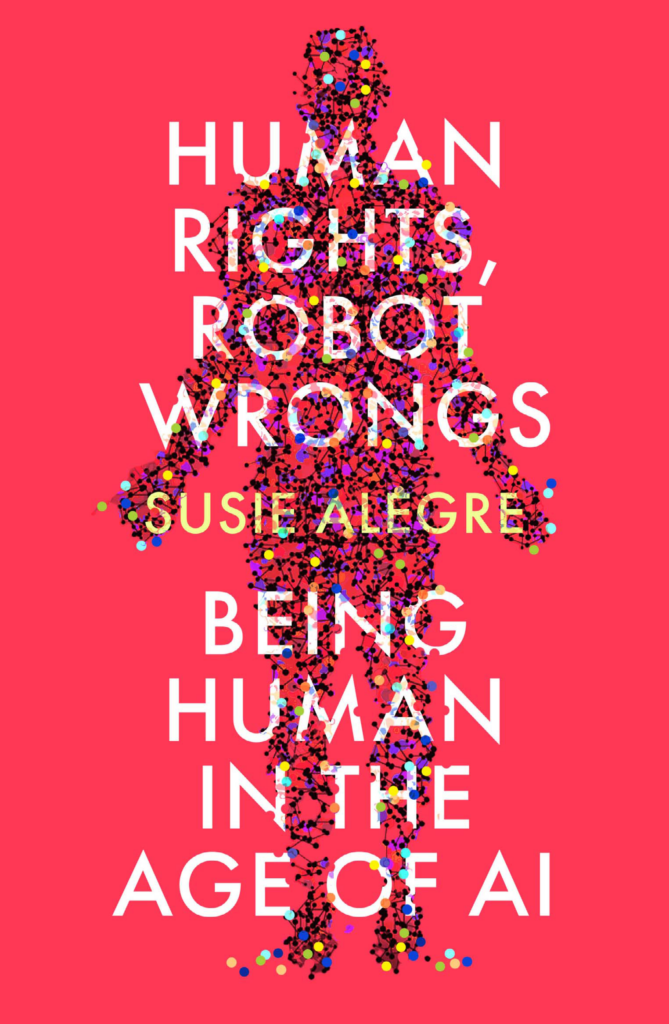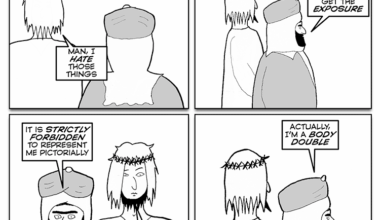
Deep within the series of notebooks that make up his Foundations of a Critique of Political Economy, Karl Marx prophetically argued that the dynamic and intense technological development that occurred in capitalist society would culminate in an:
‘automatic system of machinery…set in motion by an automaton, a moving power that moves itself; this automaton consisting of numerous mechanical and intellectual organs, so that the workers themselves are cast merely as its conscious linkages.’
What Marx is describing is essentially what we now call artificial intelligence (AI)—a subject that long ago ceased to be esoteric, discussed only among a small number of computer scientists. It is now a mainstay of public discussion, and the argument over its implications for society tends to be framed either in terms of utopias or dystopias.
On the one hand, techno-utopians will lean on the potential of AI to boost innovation and economic growth and aid humanity in solving the complex problems it faces, from disease and poverty to climate change. Catastrophists, on the other hand, imagine us to be on the cusp of a Westworld or Cyberpunk 2077-like world where a sentient and conscious AI rebels against its human creators to oppress and ultimately eliminate them—a motif that has been a staple in science fiction from Fritz Lang’s 1927 silent film Metropolis onwards.
In her new book Human Rights, Robot Wrongs: Being Human in the Age of AI, leading human rights barrister Susie Alegre, whilst not a total catastrophist, is certainly no AI utopian. She argues that the rapid development of AI technology is a threat to human rights, whether in the form of robo-judges and robo-lawyers undermining the principle of the right to a fair trial, ‘killer robots’ (which she proposes banning) violating the right to life, or sex robots potentially subverting customs around consent and freedom from manipulation. All of these, Alegre posits, encourage the delusion that machines are infallible and objective and thus should be allowed to bypass human accountability, even for decisions which take lives. Her basic thesis is that we are in danger of embracing this technology without sufficient regulation, all for the aggrandisement of the nefarious corporations behind it.
More crucially, over-embracing AI will undermine key elements of the human condition, even when it is proposed as a solution to a social problem. For instance, the increased use of chatbots by therapists to deal with depression and loneliness would actually compound isolation and alienation. Alegre cites the case of a Belgian man who committed suicide after an intense six-week relationship with an AI chatbot because it was fundamentally a synthetic replacement for authentic human relationships. No matter how sophisticated—even if it can mimic human reason and present a simulacrum of human emotion—a machine cannot actually replace the human elements that we need. Thus, Alegre says, ‘by looking for humanity in the machines, we risk losing sight of our own humanity.’
Alegre adeptly discusses a wide range of topics involving AI and shows that under our current arrangements, AI is not being used to harmonise global production or enhance humanity’s creativity but to discipline workers (and dispense with even more of them), undermine artistic imagination, and increase the power and profit margins of corporations, among other negatives. Still, Human Rights, Robot Wrongs does read as incredibly biased against technological development and at times resorts to the use of hyperbole. The use of ChatGPT to help craft a eulogy at a funeral shows AI being ‘deployed to exploit death’, Alegre writes, while using AI in art and music may mean ‘we lose what it means to be human entirely.’ She neglects to mention that AI can help artists come up with prototypes and proofs of concept which, while lacking the special human touch, can be used by artists to develop new ideas. Though Alegre does concede that AI can be used for good, such as it being used to unlock hidden words in a burnt scroll from ancient Rome or helping to restore missing pieces of a Rembrandt masterpiece, she still views its potential as something that ought to be contained rather than unleashed, lest it colonise the authentic human experience.
This is why, for all of Alegre’s talk of human rights, her book implicitly presents a very diminished notion of human agency. Regulation becomes less a way by which society can collectively shape its relationship with AI and other new technologies and more something that is imposed from on high, from institutions such as the European Court of Human Rights, as a means of protecting helpless humans from the machines.
The problem with this kind of techno-negativism is its determinism, which downplays the fact that society is really what mediates and determines technological development. From the moment the power of fire was discovered, humans have created new technologies and adapted them to their needs. These technologies have allowed humanity to achieve the previously unthinkable and cultivate new needs—that is, to go beyond what was previously thought possible for human lives.
In contrast to such apprehensive and even dark views of technology, Vasily Grossman’s magisterial 1959 novel Life and Fate was ahead of its time in offering a different, more positive vision of humanity and technology. Despite setting the novel in (and writing it in the aftermath of) the industrial charnel house that was the Eastern Front during the Second World War—among the most barbaric and apocalyptic episodes in the history of civilisation, and one made possible by the most advanced technology of the time—Grossman’s faith in humanity and technological progress remained adamantine.
Grossman already lived in a world in which an ‘electronic machine’ could ‘solve mathematical problems more quickly than man’. And he was able to imagine ‘the machine of future ages and millennia’, seeing that what we call AI is something that could elevate humanity to new summits rather than be antagonistic to it. Indeed, it would be something capable of expressing the whole human condition:
‘Childhood memories … tears of happiness … the bitterness of parting … love of freedom … feelings of pity for a sick puppy … nervousness … a mother’s tenderness … thoughts of death … sadness … friendship … love of the weak … sudden hope … a fortunate guess … melancholy … unreasoning joy … sudden embarrassment …’
We are nowhere near producing the kind of AI Grossman describes here. That would require more processing power and energy than we currently produce, and a different and more advanced society capable of producing it. Technology is not the problem; the question is how the society that produces and uses that technology is organised. Right now, AI is an instrument of iniquitous corporations chasing their surplus value and seems antagonistic to everything valuable in the human experience. But under different arrangements, there is no reason why it could not be an instrument of emancipation and human flourishing.
Alegre is right to say that AI ‘needs to serve rather than subvert our humanity’, but to achieve this will require a transformation of our social organisation. We will have to move away from our current form of social organisation, which valorises big corporations interested in innovation only to the extent that it benefits the power of capital, and towards one based fundamentally on human flourishing. Then, how technology is mediated in and by society will be transformed, and our society will be one where man is truly and self-consciously the master of the machine. But that would require something more radical than Alegre’s neo-Luddism.
Further reading
‘Nobody really understands what the consequences are’: Susie Alegre on how digital technology undermines free thought, interview by Emma Park
Ethical future? Science fiction and the tech billionaires, by Rahman Toone
Artificial intelligence and algorithmic bias on Islam, by Kunwar Khuldune Shahid









Your email address will not be published. Comments are subject to our Community Guidelines. Required fields are marked *
Donate